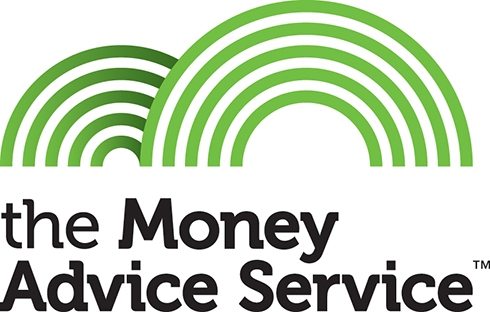It's session number 39 , and we’re going to be talking about my Personal Finance Room 101. You remember the programme and the concept, right? Anything you can’t stand, you get to put in room 101 as long as Paul Merton approved of the decision. The programme format was just an alternative take on a chat show really, but it gave you an insight into the psyche of the guest, who got a chance to vent about the things which wound them up.

There are plenty of things that wind me up. Shop assistants talking to their colleagues when they’re supposed to be serving me for example, that makes me cross…
But as this is a personal finance podcast, I’d better limit my list of dislikes to those things money-related. Hopefully it’ll give you some insight into how I tick, and I bet some of the entries to my Room 101 also resonate with you…
Click to Listen
Podcast: Subscribe in iTunes | Play in new window | Download
We’ll get to the latest reviews etc after the content. I’ve had encouraging feedback about keeping the content front and centre – it’s why you’re here after all and I’m very grateful that you are!
Having said that – stay tuned for the first ever MeaningfulMoney Podcast listener competition after the main part of the show
But first…
 Sponsor Message
Sponsor Message
This podcast is brought to you with the help of Seven Investment Management, a firm of investment managers based in London. They put their name to my show and to my site and videos because they believe in what I’m doing, and I’m very grateful for their support. You can see what they’re up to at 7im.co.uk
Introduction
So this session is one of our occasional departures from the usual format of what you need to know followed by what you need to do. I’m not sure how actionable any of this will be, but hey ho – it’ll be fun.
Shall we?
1 – “To make your money work harder”
These are in no particular order, but I do hate this one very much. The problem is, it’s such an easy one to slip into. I bet you’ve heard it, spoken by an adviser, often in a bank somewhere.
“Would sir like to open this new account? It offers a high rate of interest, so your money is working harder”
Now I understand what the bank person is getting at, and to a point it is true, but I hate it because it is vague and smacks of a product sale rather than the obvious result of a financial planning exercise.
Work harder for what? To what end? Harder than what? Grrrr. You’re already thinking that I need to calm down and not get exited about stuff which just doesn’t matter, but I can’t really articulate how much this one annoys me.
Here’s the thing: Money is good for three things (I’ve said these before and I’ll say ‘em again): Investing towards an stated aim, spending on having fun and giving away. So working harder for its own sake is a nonsense. If the money stands a better chance of achieving the desires set for it by shifting it to a better account, then fine, but let that be the reason, rather than the bank clerk having to hit her new accounts target.
Breathe. Breathe. It’s going to be fine.
FFfffffff.
OK – let’s move on.
2 – Payday lenders
These are the businesses everyone loves to hate, and I’m no exception. I hate payday lenders for the way they prey on the financially vulnerable. I hate them for their exorbitant interest rates. They are legalised loan sharks and nothing more.
Perhaps even more than the payday lenders themselves, I hate the fact that our current economic situation and the country’s dependence on debt has made a market for the Payday lenders to thrive.
The idea behind a payday lender is that you borrow a small amount of money for a short period of time – until next pay day. The problem is that the chances of the person, having paid the loan back plus fees when they get paid, then making it through the following month without needing to resort to the payday lenders again are slim to none. In fact, more than likely, they’ll need the loan a few days earlier, and so need to borrow a little more. Before they know it, they are borrowing an entire month’s salary and living a month permanently in arrears.
Eventually the payday lender will turn off the taps and the borrower may have to turn to actual loan sharks and sacrifice their kneecaps if they don’t pay back on time and in full.
There is talk about capping the lending rates, and that’s good news, but I’d much prefer the government do something to regulate these lenders and they way they work, and encourage more ethical alternatives like credit unions and peer-to-peer lending.
3 – Super high-interest monthly savings accounts
What? What can possibly be wrong with high interest bank accounts? Well, nothing really but the ones that I’m talking about are the ones which you pay into monthly and offer a rate which sounds waaaay above what you’d think it would be. So for example, you might be offered 6% for a year if you pay in up to £1,000 a month into one of these accounts. After the end of the year, the accounts reverts to 0.03% or something similar.
6% for a year sounds great. Except that it isn’t. Remember you can only pay in monthly to these accounts. So your first monthly payment of £1,000 does indeed attract interest at 6% for the full year.
The second payment of £1,000 is only in the account for 11 months, so it doesn’t get 6%. It gets 11/12ths of 6%
The third payment of £1,000 is only in the account for ten months, so it only gets 10/12ths of 6%.
And so it goes on. What actually happens is that the total interest earned over the year, before tax, is a little over half the headline rate. That may still be worth having, but I do wish they’d be a little bit more honest with the advertising, and stop people from calling me all smug telling me they’re getting 6% on their savings.
No you’re not – do the sums.
4 – Crooked ‘advisers’
Last week there was a news story about an adviser defrauding his client of £350,000 and then murdering the client to cover his tracks. While this is extreme, there are always stories about advisers duping vulnerable people out of their life savings.
I know that wherever there are human beings, there will be a cross-section who will do anything to make a buck, no matter who gets in their way. But as an adviser myself who is very aware of the trust that my clients put in me, it pains me that these crooks are tainting my profession with their shenanigans.
The financial services regulator, the Financial Conduct Authority for the most part do a good job in censuring bent advisers, but they struggle to stop some crooks becoming advisers in the first place. And of course, some of the advisers are not advisers at all, just cons in suits.
Here are some ways you can protect yourself against the dodgy ones:
- Check any adviser you meet is listed on the Financial Conduct Authority register. I talk about how to do this in video episode 271
- Always do your homework. Check the advisers website, call their office, send them an email and see of you get a response.
- Ask your friends if they have used an adviser they trust, rather than calling someone out of the blue
- Don’t sign anything under duress, always think about whatever it is the adviser is pushing you to do. Don’t be fooled by special offers, limited windows of opportunity and the like.
- Never write a check to the adviser themselves unless they invoice you first or if they have ‘client money permissions’ – again, check the FCA Register.
There’s more about how to find an adviser you can trust in Session 8 of this podcast
5 – Opaque charging structures
I totally believe in simplicity when it comes to your money. Why make things more complicated than it needs to be? For 98.4% of us (or thereabouts) we don’t need offshore tax planning, complex trusts and the like. We need an investment portfolio, a pension, maybe a couple of investment properties, a decent investment strategy and above all, a plan to work to.
Complexity breeds confusion, and confused people make mistakes that they may later regret. Often because they end up paying more in charges than they should.
Take your average fund. The fund manager will usually quote the AMC, or Annual Management Charge, expressed as a percentage. Then there are other expenses, and the AMC plus these extras often makes up the TER, or Total Expense Ratio. As my friend Justin Urquhart Stewart says, this is confusing because it’s not the total expense and it’s not a ratio. There are still other costs, and as I type, the fund companies don’t have to disclose these in full to you.
Once you start holding these funds inside a tax wrappers, and then hold the wrapper on a platform you layers of costs can get really confusing. And these are fairly simple products – look at some of the old insurance company investments of 20 years ago and God only knows how much you are paying.
If you are going to take out a new financial product of some kind, demand that your adviser lay out the charges for you and break it down by platform, wrapper, fund and advice. Know what it is you are paying, otherwise you’re just throwing money away.
 6 – The Money Advice Service
6 – The Money Advice Service
The Money Advice Service is a quango which was tasked with being a point of reference for those needing financial guidance and debt advice. It has an annual budget of £80million which is paid for by the financial services industry in the form of annual levies.
This week it has been panned by the Treasury Select Committee as being unfit for purpose. Singled out for the wrath of the committee was the former chief executive who trousered a salary of £350,000. That’s a hundred grand more than the Prime Minister, for crying out loud.
MAS has spent huge sums on fatuous adverts which have achieved precisely nothing as far as anyone can tell.
I’d love to scrap the whole thing and start again. And though I say it myself, imagine what I could do with MeaningfulMoney with an £80million budget!
Some serious questions need to be asked about why the MAS has been so ineffective. Perhaps its targets were vague. Perhaps it had inept leadership. I have no idea really, but certainly I’d like to get rid of it and start with a blank piece of paper.
I wonder how you would put together a service which is meant to improve the financial health of the nation? Do let me know in the comments – I’d love to hear from you.
7 – “My property is my pension”
Hmmm. You don’t hear this quite so much these days, because the sheer nonsense of it seems to have filtered slowly into the nation’s consciousness. Back when property prices were only going one direction, people genuinely though that their own property – the one that they lived in – would somehow provide them with a comfortable retirement.
I despair.
Obviously you can release money by downsizing a property, selling up and buying a smaller place, but obviously the smaller place would have increased in price at the same time and rate, presumably, as the place you are selling. Inflation in the meantime has eroded the buying power of whatever lump sum might be released by downsizing.
So it doesn’t really work, and I do think we know that now, but I do still occasionally hear this, and it is all I can do not to slap the people I hear it from.
Obviously property as an asset class is fine for investing into. I would always spread the money around and diversify into other asset classes too, and make sure you’re using ISA and pension allowances as well as buying properties.
But your home is your home. It is not an investment.
8 – Lack of PF Education in schools and colleges
It’s a little bit tricky to put the absence of something into Room 101, but here goes.
We do not, as a rule, teach our kids how to manage money, which is an absolute travesty. I’d like financial education to be compulsory at all levels of the school system so that our kids are better prepared for financial adulthood than they are now. It’ll take a generation or two to work out, but 50 years from now we’d be in better financial health as a nation.
For more about teaching your kids about money, see Session 26. In that session I talk about my financial upbringing and the mistakes I made at college which meant I used to close my eyes whenever I went to a cash machine as I had absolutely no idea if it would give me any money or not!
If we can arm our kids with decent information at all stages of their schooling, in a generation or two we’ll have a far healthier nation, financially speaking. It’s a case of making it accessible, fun, relevant, and – ahem – meaningful to the kids. If there are any child psychs, teachers or the like out there – contact me, we could make a difference together.
OK, I’m done, for now. Have you got anything you’d like to dump in the personal finance Room 101? Let me know in the comments.
This week’s reviews
Three more reviews as I record this. The first from simonk8270:
“I love the podcast. I am into programs like this, and like the simple but yet detailed explanations of the varied topics that are covered. Thank you.”
Thank YOU Simon – much appreciated. Next up is Rob 123456:
“This is great podcast for anyone wishing to understand the things they should be thinking about and the practical steps they can take to improve their personal finances. Pete has a wealth of experience that he’s kind enough to share, and his advice is always grounded and sensible. I’d particularly recommend the session on budgeting if you’re going to pick one, and if you’re prepared to give it a go I promise it makes a real difference. Highly deserving of five stars (despite the occasional bad jokes).”
Hmmm. Not sure about the bad jokes, but otherwise that’s a fab review – thank you. Last one from ChrisB2013:
“This is a great podcast, genuinely helpful and hosted by someone who is very easy to listen to and certainly doesn’t baffle the listener with technical or complicated jargon. Really easy to understand, and for a layman, this is a brilliant resource to learn all sorts.”
Fantastic – thank you Simon, Rob and Chris for those.
Here’s the competition: I have 49 written reviews as I record this. The person who posts the 50th review will get a £50 iTunes voucher or Google Play voucher, whichever they prefer. The winner will be the person with the review that is posted after Chrisb2013’s which shows up when I sort the reviews by most recent.
I’ll announce the winner next week. That is, assuming anyone leaves me a review! If not, I shall sulk.
News
A great piece of news this week: I have been shortlisted for the Baillie Gifford/Professional Adviser Award for Best Client Engagement in February 2014. This used to be called the Financial Education award and I won it in 2011 and 2012, so I’m after a hat-trick! Fingers crossed…
Outro
That's it for this session of the MM podcast, I hope it was helpful. Did I miss anything? Do you have any questions? If so, please leave them comments or questions at meaningfulmoney.tv/session39
If you like what you hear on this podcast, please leave a rating or review on iTunes by going to meaningfulmoney.tv/iTunes. This helps others to hear about the show and to subscribe, because it keeps me near the top of the rankings.
I hope you enjoyed this session. Next time we'll be talking about How to survive Christmas without ruining your finances.
If you have any questions about this, go to meaningfulmoney.tv/feedback and leave a voicemail
Thanks for listening – I'll talk to you next time



Leave a Reply